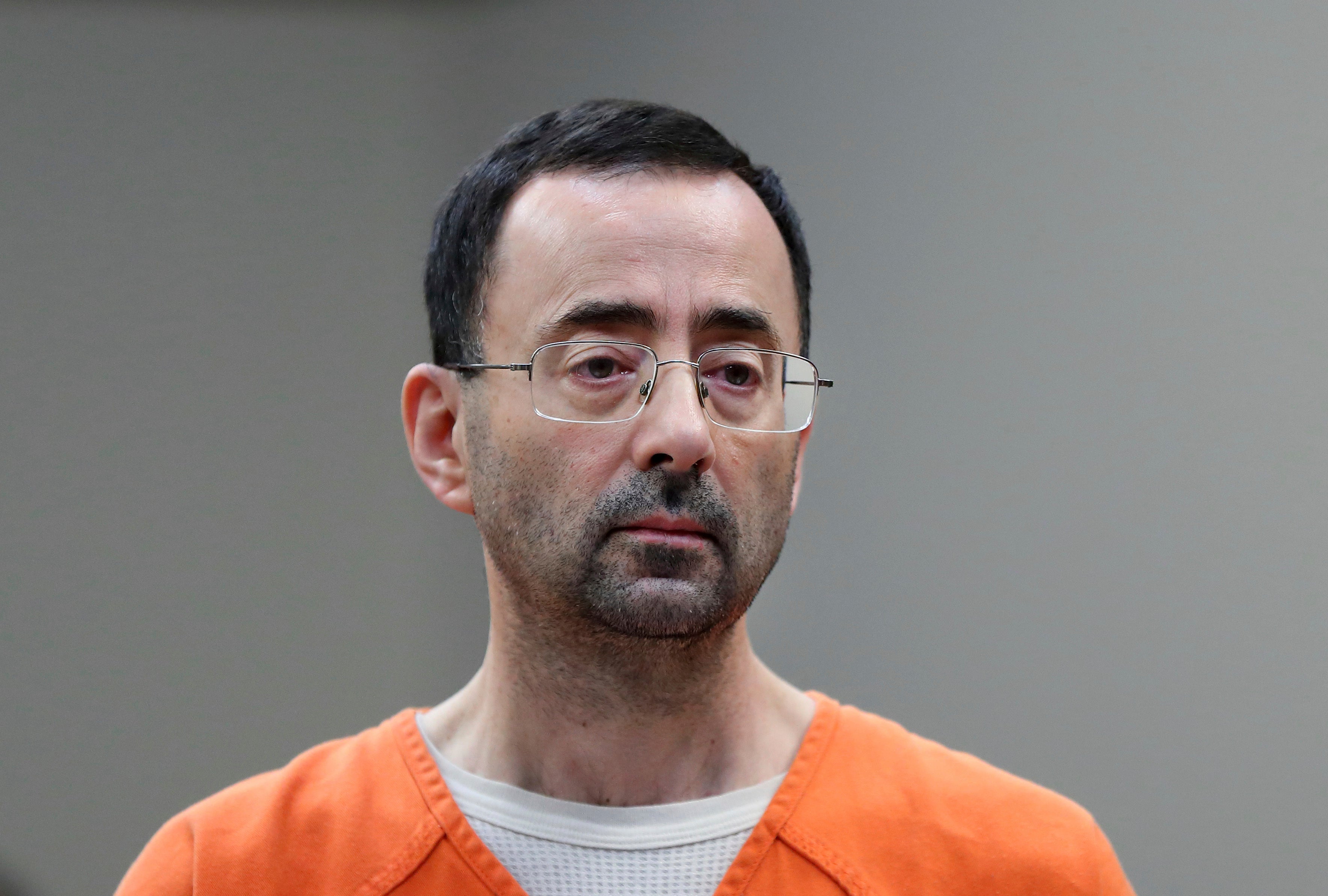Michigan State University fined $4.5 million in Nassar case
WASHINGTON (AP) — The government on Thursday ordered Michigan State University to make sweeping changes and pay a $4.5 million fine after determining that it failed to adequately respond to sexual assault complaints against Larry Nassar, a campus sports doctor who molested elite gymnasts and other female athletes.
Education Secretary Betsy DeVos announced the penalty after the conclusion of two federal investigations. She said Nassar’s actions were “disgusting and unimaginable” and that the university’s response fit the same description.
“Too many people in power knew about the behaviors and the complaints and yet the predators continued on the payroll and abused even more students,” DeVos said in a call with reporters. “This must not happen again, there or anywhere else.”
The fine, which will go to the Treasury, is the largest levied under the Clery Act , a law that requires colleges to collect data on campus crime and notify students of threats. The previous largest fine, $2.4 million, was imposed in 2016 against Pennsylvania State University over its handling of sexual misconduct involving former assistant football coach Jerry Sandusky.
The department’s investigation concluded that Michigan State violated several key parts of the Clery Act along with Title IX, a federal law forbidding discrimination based on gender in education.
In response, the school announced the resignation of its chief academic officer, Provost June Youatt.
President Samuel Stanley Jr. said his predecessor, Lou Anna Simon, and Youatt “failed to take appropriate action,” especially with regard to William Strampel, a medical school dean and Nassar’s boss, who faced his own harassment allegations.
“In my effort to build a safe and caring campus, we must have a culture of accountability,” said Stanley, who took office on Aug. 1.
The government’s investigation found Michigan State violated law by failing to disclose crime statistics, failing to issue campus warnings about security threats and failing to establish a system to collect crime statistics. As a remedy, the school says it will hire a Clery compliance officer and create measures to protect athletes and children who participate in youth programs on campus.
A separate Title IX investigation found that Michigan State failed to respond to reports of sexual misconduct against Strampel and Nassar, failed to take interim measures to protect students while complaints against both men were pending, and failed to take steps to end any harassment and prevent it from recurring.
As part of its settlement agreement with the department, Michigan State says it will make “substantial” changes to its Title IX procedures and will provide a process to help victims of Nassar, including offering counseling services, grade changes, tuition reimbursement or the opportunity to retake classes at no cost.
The school is also being ordered to consider sanctions against current and former employees who failed to take action after being notified of sexual misconduct by Nassar and Strampel.
John Manly, a lawyer who represented scores of Nassar’s victims, said the fine amounts to pocket change for a school with an annual budget of more than $1.5 billion.
“Just this week, the government fined YouTube $170 million for simply monitoring kids illegally,” said Manly, referring to a deal between regulators and YouTube’s parent, Google. “Here we have a university that engaged in the systemic protection of a pedophile.”
Kenneth Marcus, the department’s assistant secretary for civil rights, said the agreement represents an “extensive and robust” resolution. Unlike most Title IX investigations, which are usually triggered by complaints submitted to the department, Marcus’ office said he launched an investigation into Michigan State in 2018 based on the severity of the allegations.
“This message should be heard loudly and clearly by all universities so that the tragedy at Michigan State University is not repeated elsewhere,” Marcus said.
Nassar was sentenced to decades in prison for sexually assaulting athletes, mostly female gymnasts, at Michigan State and a Lansing-area gymnastics club. Former Olympians said he also molested them in Texas and overseas while he worked for USA Gymnastics.
MSU last year agreed to a $500 million deal with Nassar’s accusers. Most of the money, $425 million, was for 333 people, mostly women and girls, who had already sued. MSU so far has settled with 72 people in the second wave of litigation but dozens remain.
Strampel last month was sentenced to a year in jail for neglect of duty and misconduct in office. He was accused of failing to monitor Nassar and of sexually harassing students.
Simon abruptly resigned as president in January 2018 after Nassar was sent to prison. She has her own legal problems: She’s charged with lying to investigators about what she knew about complaints about Nassar. A judge must decide whether there’s enough evidence to order a trial.
